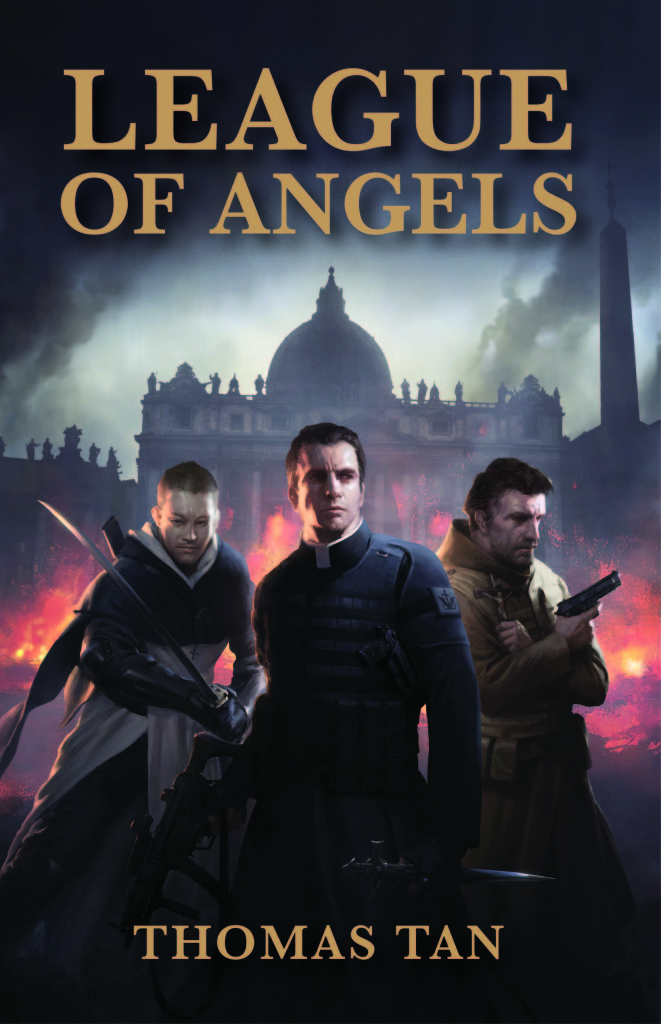Sister Enrica may have taught me how to pray as a kid, but it was Captain America who really taught me how to read. Even then, I thought Sister’s white habit with her traditional veil was every bit as cool as the star-spangled duds worn by our shield-throwing hero.
Let’s be honest, there’s something cool about religious outfits and the costumes of superheroes that excite our imaginations and make us want to look up into the sky, whether it’s to raise our eyes to heaven or to see if a man can fly. And given that members of some religious orders actually wear capes, a kid might be tempted to look out for both.
[See also: St. John Paul II Was a Marvel Comic Book Hero In the ’80s]
[See also: Bl. Mother Teresa Was a Marvel Comic Book Hero in the ’80s, Too!]
But in truth, so much of our evangelization targets the head and leaves out the imagination. Sure, some Catholics move on from grade-school catechism to study theology, but for the most part they’re a minority. On the other hand, the number of people who enjoy pulp fiction and popular entertainment grow larger by the day. And these are the folks who are influencing the world by how they live and consume entertainment.
More than ever, there’s an urgent need for Christians to use the language of popular culture to preach Christ crucified and risen.
Think about it. Why is it easier to learn from stories than from cumbersome facts and data? Maybe it’s because we learn best when our imaginations come alive, or when the learning itself is fun and entertaining.
I mean, who doesn’t enjoy a good story? People in the time of Jesus certainly did, which is why Our Lord often used parables to convey lessons about the Kingdom of God. And what are parables if not stories that connect with popular imagination, using images and symbols from contemporary culture to transmit grace and understanding, to awaken consciences.
Today, great stories continue to thrive. Except now, the characters and values they transmit are immortalized in big-budget movies, games and graphic novels. Then as now, popular culture influences behavior – particularly among the young – because it’s fun, it’s entertaining, it’s easy to share and talk about. And it doesn’t require any real form of discipline or hard work to understand the content, even when the message is serious and controversial.
Back in the 60s, Marvel Comics broke tradition with DC when they began tackling grown-up topics like drugs, political scandals and the Civil Rights Movement. Suddenly, the superheroes every kid adored were putting their moral muscle behind social and cultural issues of the time. And the readership began to change. The more edgy and controversial the content, the older and more sophisticated the audience, even though the core readership was still made up of kids.
Pop culture became a reflection of what was going on in society. And people tired of listening to parents, pastors and politicians, started reading, assimilating, and absorbing what they saw and read in popular entertainment.
Today, Marvel Comics has moved on to support the LGBT agenda by raising the call for greater sexual diversity among its heroes, with DC closing the gap recently by making Wonder Woman a mighty proponent of gay ‘marriage’. If anything, the voice of liberalism has grown louder in pop culture, where theater, art, music, and movies all exert increasing influence on young hearts and minds.
But where is the voice of Christ in these parts, given there are far more people who are eager to consume pulp fiction than to listen to a homily or study apologetics? Despite the overwhelming consumption of popular culture throughout the world, Jesus is barely present to this audience, except very often in contemptuous ways.
We need to be ingenious in sanctifying the language of the world to reach audiences accustomed to dismissing the Christian faith. We need workers to till this colorful, exceptional, youthful vineyard, so that it too may bear fruit for the Lord.
Take storytelling for instance. I’ve written a fantasy novel that combined the splendor of divine truth with a good stylized adventure. It’s called League Of Angels.
Although purely a work of fiction, it attempts to bring to life the wisdom of the saints and the teachings of the Church in a way that captures the imagination of mainstream audiences.
At the very least, we must try to bridge the wide divide between sacred tradition and the insanely cool world of pulp fiction, to evangelize the imagination of those who refuse to cross the threshold of faith.
Nor can we afford to be snobbish when it comes to evangelization. We can’t thumb our noses at the growing throngs at Comic-Con, rock concerts, and gaming conventions. These are the new battlegrounds where the culture war is fought.
Chesterton understood the power of the imagination when he said, “Fairy tales do not tell children that dragons exist. Children already know that dragons exist. Fairy tales tell children that dragons can be killed.”
And if powers hostile to the gospel know that the way to victory is through deforming the hearts and minds of our young, we who are baptized in Christ must be prepared to form and protect the conscience of the future.
After all, it’s what heroes do. We fight the good fight, we run the race, and we keep the faith. For if we stop believing in heroes, the heroes inside us die.
I think Sister Enrica would agree.
League of Angels is available on Amazon
[See also: 5 Reasons Catholics Should Be Taking Bitcoin Seriously]
[See also: 3 Beautiful Celebrities Who Gave It All Up to Become Nuns]



